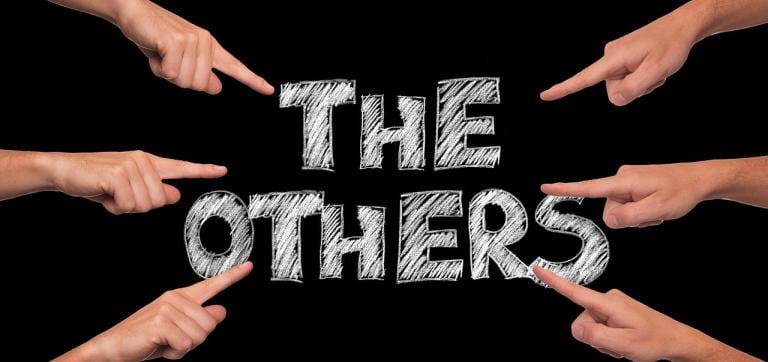James Davison Hunter is a well-respected social scientist at the University of Virginia. A Christian, he has written perceptively and sympathetically about contemporary Christianity. (See, for example, his books Evangelicalism: The Coming Generation [1993] and [2010].)
He and some colleagues at the Institute for Advanced Studies in Culture have conducted a research project studying today’s polarized political culture. They explore the conflict between what they call the “Social Elite” and the “Disinherited.” The published and downloadable report, Democracy in Dark Times: The 2020 IASC Survey of American Political Culture, is fascinating and offers topics I’d like to blog about in the future.
But right now I’d like to share a rather astounding finding from the study about the way evangelicals, who were once so prominent in American culture, are now perceived:
Toward the end of the twentieth century, a concept emerged in the social sciences that has enjoyed some currency: the concept of the “cultural other.” In any society or group, there are those who are “in” and those who are “out”— that is, inside the shared agreements of understanding and social practice, or outside them. The cultural other is an individual or, more than likely, an entire group, whose beliefs and practices place them outside of “normal” or “acceptable” society. Their way of thinking and of life offends the sensibilities and ideals of the dominant group, and in this sense, they are stigmatized in the extreme. As such, the cultural other is regarded as not just outside of the in-group, but so far outside that their very presence represents a profound ethical violation that might even be experienced as repugnant to those who are not part of it. This would now seem to be how many people outside of Evangelicalism have come to think about the modern-day Evangelical movement and those who comprise it.
Evangelicals–often a synonym for white conservative Protestants more generally–want to be liked, and used to be liked, and still assume that they are liked. Evangelicals were considered to be and considered themselves to be central to American culture. Realizing that they have become both “repugnant” to non-evangelicals, particularly the “Social Elite,” and “marginalized” (the term for being Other) in the culture as a whole has to be shocking.
Why a group that used to be the “social elite” is now scorned to this degree and what, if anything, can be done about it are discussions I want to have in later posts.
But what I am marveling at even more right now is that the status of being “the Other” is fundamental to critical theory and intersectionality. That is, to the postmodern, post-Marxist analysis so beloved by the Social Elite, at least those in academia. And the concept has some validity: Those whom we consider to be “other” than ourselves, to this degree, we can dehumanize and mistreat with impunity. People of other races seem to be so “other” that they can be enslaved or colonized or eradicated in war. Critical theory has studied how Blacks, Muslims, homosexuals, etc., etc., have been the victims of “othering.” (See this article on the subject.)
Those who teach about how human beings often project an “other,” who is then no longer a candidate for empathy and becomes a victim to be oppressed, emphasize that we shouldn’t do this. To break away from this tendency, we need to “put what is in the margins into the center.” That metaphor from the printed page means that we should rethink history, literature, and other subjects from the point of view of the oppressed; that is, of the “other.” Thus the revisionist movement throughout academia. Thus the “intersectional” alliance of racial minorities, stigmatized sexual and gender identities, the disabled, and other “Others” who have been culturally marginalized and oppressed by the “privileged” in groups.
But if evangelicals are the new “Other,” shouldn’t they too be included in the intersectional web of acceptance? If they are marginalized, shouldn’t academics approach them with intentional empathy and attempts at understanding?
So far, what I have heard from these circles is the notion that evangelicals have it coming. Evangelicals were the main offenders in “othering” people they didn’t approve of. Now they whine when they experience that themselves. Serves them right.
And yet, this is an incoherent response. If “othering” is wrong, it’s wrong whoever is doing it and whoever is the target. After all, Muslims have even more retrograde attitudes towards women, gays, and those outside their religious circle than evangelicals do, and yet, since they have been treated as “the Other,” they find acceptance.
Besides, the criticism of evangelicals in this context is usually that they are privileged. If they are no longer privileged, the criticism fails.
To use Hunter’s terms, could it be that the Social Elite, as validated in the universities complete with their critical theory, have become the privileged? And that the Disinherited, who used to be privileged but are so no longer–which includes not only evangelicals but also members of the white working class–have become the marginalized?
What does such a reversal do to critical theory?
Image by Gerd Altmann from Pixabay













